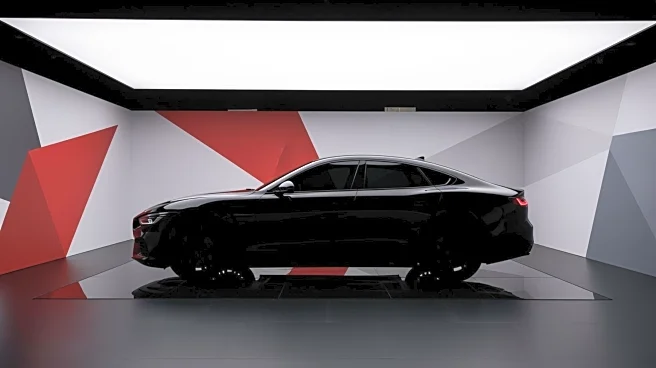What's Happening?
At the Guangzhou International Auto Show, Chinese car enthusiasts are showing interest in Japanese vehicles despite ongoing diplomatic tensions between China and Japan. The tensions have escalated following
remarks by Japanese Prime Minister Sanae Takaichi, suggesting a potential military response from Japan if China attacks Taiwan. Despite these political strains, attendees at the auto show are prioritizing the quality and value of Japanese cars over political issues. The show features prominent displays from Japanese automakers like Honda and Nissan, with integrated technologies from Chinese partners such as Huawei and Hikrobot. The diplomatic row has affected commercial activities, including the cancellation of Japanese concerts in China and travel warnings issued by Beijing. However, the auto show attendees express a separation between economic choices and political conflicts, emphasizing the global integration of Japanese brands in the Chinese market.
Why It's Important?
The situation highlights the complex interplay between politics and commerce in international relations. Despite diplomatic tensions, the continued interest in Japanese vehicles by Chinese consumers underscores the resilience of economic ties between the two nations. This scenario is significant for Japanese automakers, as China remains a crucial market and production hub, even as competition from domestic electric vehicle manufacturers intensifies. The diplomatic strain could lead to prolonged challenges for Japanese firms operating in China, affecting their sales and market strategies. The ability of consumers to separate political issues from economic decisions may offer some stability to Japanese brands in the Chinese market, but the broader implications of the diplomatic row could impact trade relations and business operations.
What's Next?
Japanese firms may need to brace for a sustained period of diplomatic chill, potentially affecting their market share and operations in China. The Japanese government and businesses might seek to mitigate these impacts through diplomatic channels or strategic partnerships with Chinese companies. Meanwhile, the Chinese government could continue to leverage economic measures in response to political tensions, influencing consumer sentiment and business dynamics. The situation may also prompt Japanese automakers to diversify their market strategies and explore alternative markets to offset potential losses in China.
Beyond the Headlines
The diplomatic tensions between China and Japan could have broader implications for regional stability and international trade. The integration of Japanese brands with Chinese technology partners reflects the interconnected nature of global commerce, which may be challenged by political conflicts. The situation also raises questions about the role of consumer behavior in navigating geopolitical issues, as individuals prioritize economic benefits over political allegiances. This dynamic could influence future diplomatic strategies and economic policies between the two nations, potentially affecting regional alliances and trade agreements.









